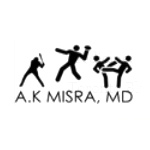New Recommendations for Breast Cancer Screening: A Deeper Look
Last week, U.S. HealthWorks published an informative Q&A column from Dr. A.K. Misra about the importance of breast cancer screening. In light of new guidelines released by the American Cancer Society, we asked Dr. Misra to write a follow-up column to take a closer look at what this means.
The American Cancer Society released new recommendations for women on October 20, 2015, recommending that mammograms should begin at age 45, instead of age 40. The new guidelines stem from the idea that less screening is actually better. Findings have shown that women under age 45 are experiencing false positives and going through painful and unnecessary biopsies and treatments for cancer that either doesn’t exist or isn’t life-threatening.
The move has created plenty of confusion and controversy among patients and the medical community.
There are few cancers for which there are protocols for screening. For those that exist, the protocol or guidelines are rather straightforward. For example, colon cancer screening with a colonoscopy is recommended to start at age 50, unless there is a compelling reason to start sooner (i.e. strong family history). Another example is cervical cancer with a pap smear – recommendations say that women should start screening no later than age 18 or at time of first coitus. Without question, these recommendations have saved many lives and have not needed to be revisited.
However, screening for breast cancer stands an exception to these two. Breast cancer screening has consistently been more difficult to button down to a rigid outline, and the reasons are understandable – there are considerable differences in each woman.
As it is a sensitive topic, the psychological burden of presenting a woman with cancer (or potential cancer) due to a false positive result cannot be taken lightly. By the same token, early detection has been shown to save lives, in the same way it has in the case of colon and cervical cancer. So, what do we do?
Fundamentally, I believe the answer to this question is to individualize and personalize the screening for each woman as she approaches age 40. The recommendations for screening have been directed not only by science and medical facts and evidence, but also consensus opinion among medical professionals, which can often change for myriad reasons – as we see with these latest recommendations for mammography.
Screening for breast cancer, whether by way of mammography or manual checks by one’s own personal physician, again highlights the importance of having a personal physician. This is a good example of where the science and art of medicine meet, as is commonplace in medical practice. As screening recommendations can easily vary from one individual to the next based on certain factors, refinement on what is truly “correct” for an individual is likely best directed by the physician who knows their patient’s medical information best.
While this recent change has come, the points of view often seem like a moving target to patients and physicians alike. I found this to be a well reasoned discussion worth review for all considering a contrasting view point.








